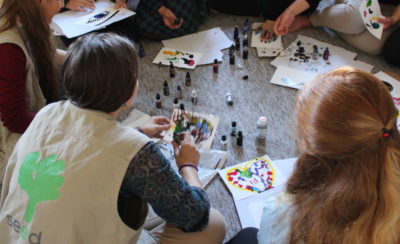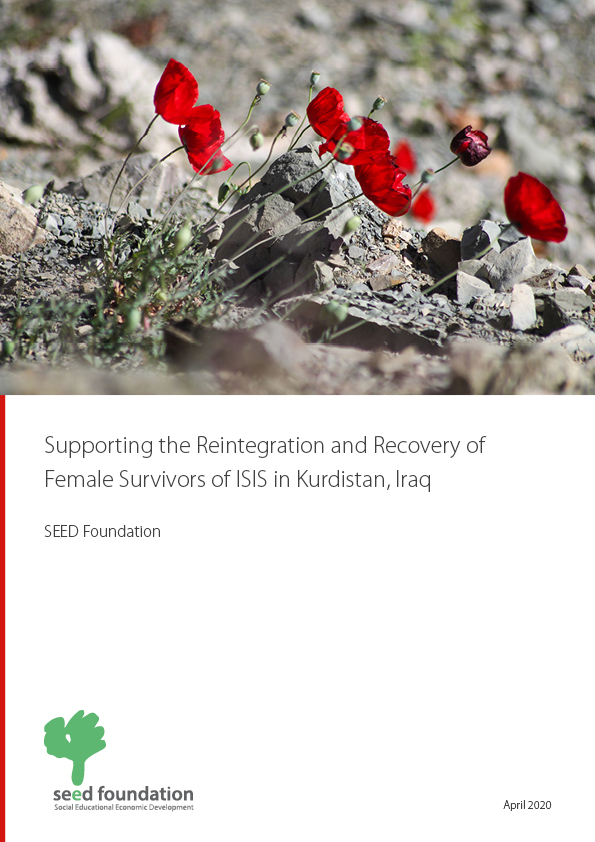Survivors of ISIS captivity and violence face many barriers to their reintegration and recovery. SEED works to strengthen protections and services and advocates for survivors’ rights.
Supporting the Reintegration and Recovery of Female Survivors of ISIS in Kurdistan, Iraq
Over 6,000 Yezidi women and children were taken by ISIS in 2014. Thousands survived ISIS captivity and horrific violence, and reunited with their families in Kurdistan. But they returned to a changed world and face critical challenges.
SEED Foundation authored Supporting the Reintegration and Recovery of Female Survivors of ISIS in Kurdistan, Iraq as part of a series focused on the reintegration and recovery of Survivors of ISIS. This paper examines the priority needs that female survivors face after returning from ISIS captivity, assesses their unique challenges and barriers to reintegration, provides examples of promising practices to support recovery, and offers recommendations for government actors, community and religious leaders, NGOs, and the donor community to better facilitate this process.

This paper was informed by key informant interviews and focus group discussions with survivors, service providers, activists, government actors, and other stakeholders, as well as SEED’s own direct experience working with survivors of ISIS since 2015. Additionally, local and international policy and practice approaches were analyzed to gain further insight into the challenges survivors face as well as the protections, rights, and services currently available to them. Our research reveals that, while many efforts have been made to support survivors in their recovery, substantial gaps remain in the response. Additionally, SEED’s approach in this paper to examining the reintegration and recovery of survivors has taken a broad perspective that integrates the policy and legal framework, as well as service provision, and, most importantly, is informed by survivors’ lived experiences, all of which SEED has compiled within this paper.
The following findings emerged from this research:
- After their return from captivity, survivors’ priority needs include: medical care; mental health services; shelter; livelihoods and financial assistance; legal support; and education.
- Survivors continue to face significant challenges that impede their ability to recover and reintegrate which include: lack of access to necessary services to meet identified needs; the impact of culture and religion on their acceptance after return and the implications of the trauma they experienced during captivity; and lack of government protections and services, such as compensation for the harm done, access to legal documentation, or justice and accountability for their perpetrators.
- Practices which have been found to be helpful include: a commitment to ethical practice standards; provision of comprehensive and long-term services; consistent, individualized service provision; cash assistance; specialized mental health services; community-based psychosocial support activities; and robust monitoring and evaluation efforts.
Government actors, community and religious leaders, NGOs, and the donor community all have roles to play in supporting survivors’ reintegration. This paper articulates practical recommendations that key institutions, actors, and stakeholders can take to better facilitate this process. Some of the overarching recommendations include development and implementation of a cohesive strategy to meet the identified needs of survivors; provision of integrated, comprehensive, long-term services to survivors using existing best and promising practices; and ensuring cultural relevance through survivor and community participation in program development.
SEED is grateful for all individuals, organizations and agencies who contributed to the Reintegration of Survivors of ISIS Series. SEED would also like to thank the KRG for their support and contributions. The development of this series would not have been possible without the support of the United States Government.

